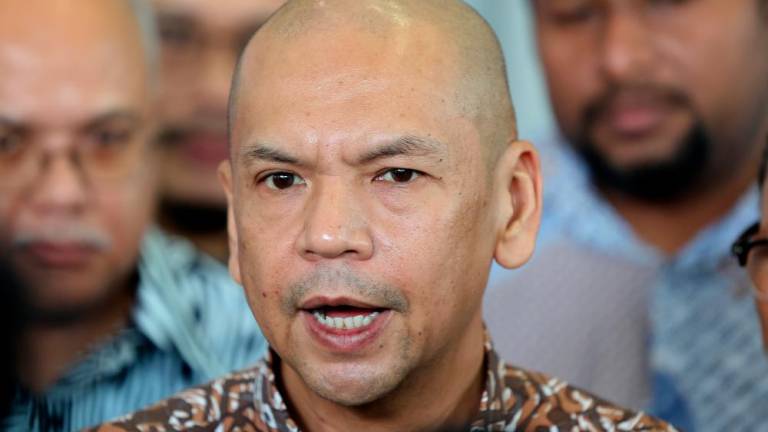THE gig economy involves those who work as full-time freelance contractors, as consultants for example, as well as those who works as Uber or Grab drivers for a few hours a week.
The term “gig economy” was popularised around the peak of the 2008-2009 financial crisis in Western countries.
This was due to the pressure to earn an income among those who were unemployed during the economic crisis.
Since then, the need for a task-based workforce has evolved and has become an important contributor in the overall economy.
Nowadays, people tend to associate services sector with the gig economy. The services sector is a major contributor to the growth and income of many developed countries.
For example, in 2015, the services sector contributed over 70% to gross domestic product (GDP) for a number of developed countries (US – 79%, Japan – 71%, Germany – 71%, UK – 78%, France – 79% and Italy – 74%).
In the case of the US, for example, participants of the gig economy accounted for about 34% of the total workforce and it expected the number to increase to 43% by 2020.
Harvard Business Review reported in 2017 that about 150 million workers in North America and Europe were engaged as freelance contract workers.
In Malaysia, the gig economy began growing over the past five years in line with the advancement of digital platforms.
Can a day job in a gig economy replace a traditional job? To answer this question, we need to look at a few basics.
Normally, job engagement relates very much with the economic sector. In our case, it is largely driven by the manufacturing sector, be it automotive, electrical and electronics, petrochemicals and others.
This manufacturing sector generally uses the concept of operations, based on division of labour in accordance with its manufacturing, a machine-based operations.
Therefore, the work is structured according to a pre-arranged work processes, which results in it not being too flexible.
According to World Bank study in 2018, 26% of the workforce in Malaysia are freelancers and this number is growing, as they prefer flexible jobs.
The Employees Provident Fund (EPF), as reported by Freelancer.com, stated that Malaysia’s freelancing economy has grown by 30%, and scores the third largest freelance market in the region.
Jobs such as Grab services, online businesses, mobile SPA and massage therapy services, and online typing services are among the freelance jobs based on the use of websites and smartphone applications.
What is the long-term impact of employment in the gig economy on the growth of the Malaysian economy?
The gig economy is expected to grow in line with the development of the services sector and will certainly contribute to the growth of the Malaysian economy.
What needs to be looked into for the country to prepare itself, is in terms of laws and regulations to regulate and facilitate its implementation, so that all those involved get the maximum benefits.
Employees’ welfare in the gig economy is, of course, different from traditional employment laws and regulations, including its taxation system. For example, a person with a monthly salary will usually use the monthly salary statement to lodge a housing loan, car loan and so on.
The same goes for EPF, Socso and income tax deductions made through pay-as-you-earn.
An innovative system may need to be introduced to cater to freelance participants in terms of EPF and Socso contributions, as well as income tax deductions, so that both parties - freelancers and the government - will benefit from the economic growth of the gig economy.
There are also the concerns for those who participate in the gig economy with no fixed or stable income and find it difficult to obtain bank loans and so on.
Should the government recognise those who are in the gig economy, like those who work in e-hailing or busking?
In my opinion, anyone who contributes to the economic growth should be recognised accordingly.
The noble idea is to provide a customer-friendly legal, regulatory and management system.
We are rewarded for what we do either because of our expertise, professionalism and skills or because of the time invested in income generation, and this should be accrued in some form.
This recording can be used as a document for subsequent matters such as housing loans or car loans.
Therefore, a more innovative, flexible and integrated system of Socso, EPF, taxation and banking should be useful for the giggers.
In addition, the value of wages ought to commensurate with one’s expertise to support the long-touted k-economy initiatives.
As discussed above, there are economic sectors that directly benefit from the gig economy, especially the services sector.
However, there are also the various types of jobs available in other sectors, such as agriculture, manufacturing, construction but having services segments.
In the construction sector, for example, there are other activities apart from physical projects involving the construction of buildings, which are the core activities of this sector.
Activities such as plan drawing, land office and municipal council management services, Fire Department and Department of Occupational Safety and Health approvals, project marketing agents, workforce recruitment and the like, are amongst the freelance jobs that can be seen from a gig economic perspective.
Dr Ahmad Othman is a Professor of Technology Management at Berjaya University College. Comments: letters@thesundaily.com










